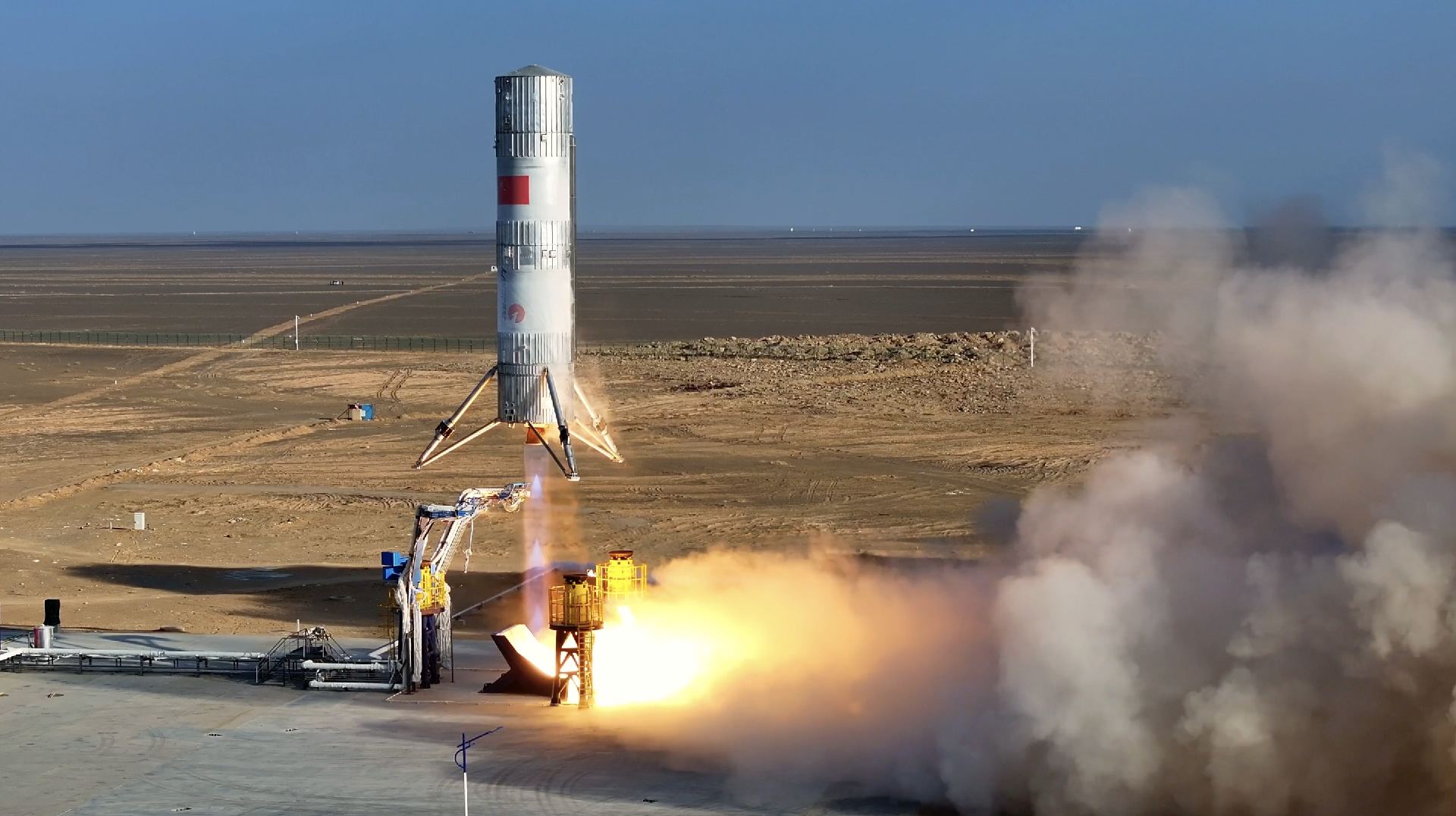At the threshold of a new era of space travel, the task is to reach orbit as quickly and cheaply as possible. In this context, reusable rockets are becoming a key element of the future of the space industry. Many companies are actively involved in this progressive process, among which a Chinese startup stands out. They recently tested their first prototype of a reusable first stage.

Chinese startup Landscape has tested its Zhuque-3 VTVL-1 rocket at the Jiuquan Satellite Launch Center in Mongolia. The event occurred on January 19, when a launch vehicle designed for reusable use went on a short flight, rose to a height of about 300 meters, and landed vertically. The test took only 60 seconds. Landscape announced that the test was successful, emphasizing that the rocket landed exactly at the designated site.
Plans for the development of a reusable rocket were first presented by Landscape in November 2023 during the Information Industry International Ecosystem Event in China. The startup assures that the Zhuque-3 rocket will be able to launch 20 tons of payload into low Earth orbit. Innovative stainless steel fuel tanks and a high-power liquid oxygen-methane engine are used to facilitate the design.
Note that other Chinese startups, such as iSpace, Galactic Energy, Space Pioneer and Deep Blue Aerospace, are also actively working on the development of their reusable rockets. This indicates the growing interest and competition in the Chinese private sector of the space industry.
In its rapid development, the Chinese private sector of space technology has created competition with the public sector, which has intensified over the past 10 years. After the Chinese government’s decision to allow private investment in space companies rather than allow state-owned enterprises to monopolize the industry, an era of innovation and experimentation in space production began.

Landscape is getting ahead among China’s private space companies, succeeding in launching the world’s first methane rocket in July 2023, making them a potential competitor to SpaceX. Elon Musk’s private space company, SpaceX, has long been a leader in the field of reusable rockets. SpaceX’s Falcon 9 rocket is capable of putting up to 25 tons of payload into low-Earth orbit, while the Falcon Heavy, with a payload capacity of 64 tons, has become an impressive breakthrough in this area.
The competitiveness in the private space transportation market is steadily increasing. Chinese companies are showing great interest in technological innovations. Although Landscape may not reach SpaceX’s level in the field of reusable rocket technology, the company is making a significant contribution to the development of the Chinese space industry. Their Zhuque-3 launch vehicle is expected to reach orbit in 2025, which will define a new stage for the Chinese space industry.
Earlier, we reported on how the Chinese company Space Pioneer was building a “copy” of the Falcon 9.
According to universetoday.com
Follow us on Twitter to get the most interesting space news in time
https://twitter.com/ust_magazine


